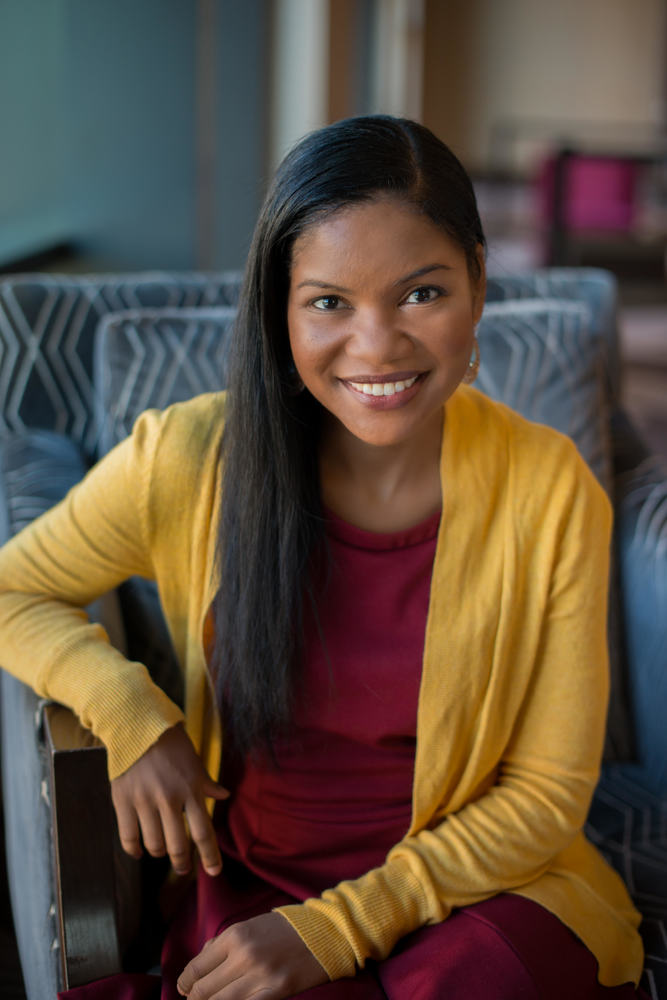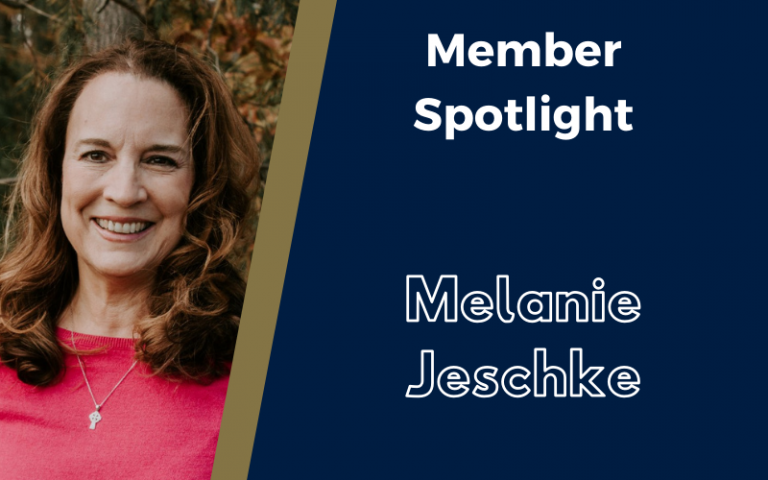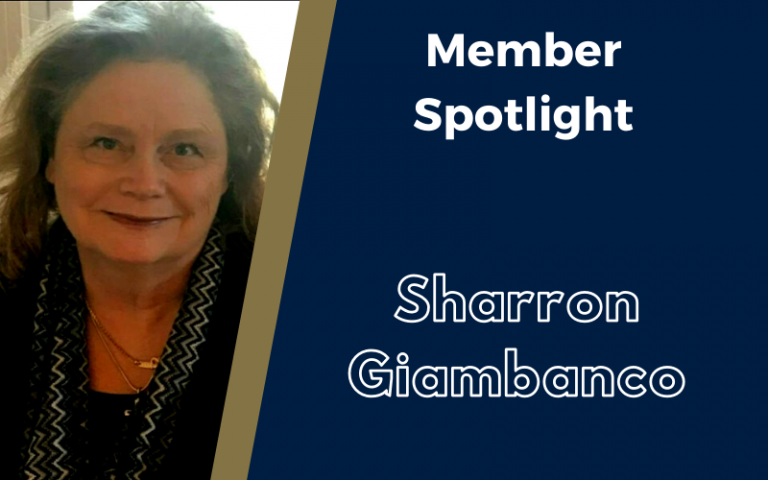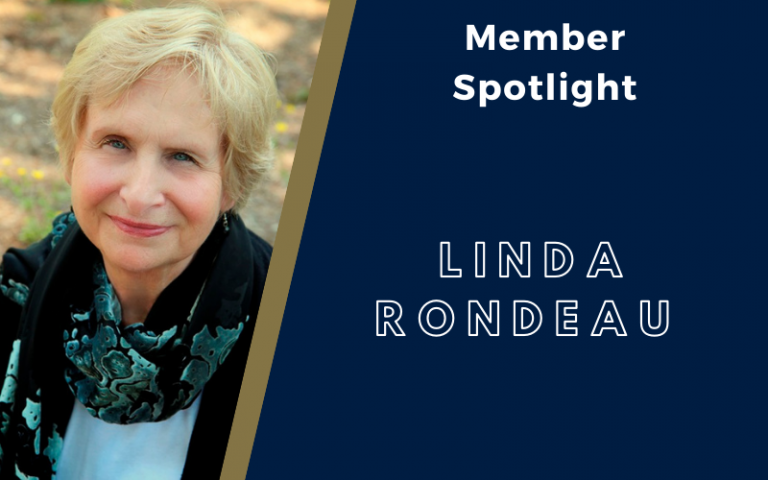Why I Write Own Voices Stories – Preslaysa Williams
Guest Blog from Preslaysa Williams, 10/31 Quarterly Meeting Speaker

Origins and Definition of Own Voices
The Own Voices movement began when children’s literature author, Corinne Davis, created a hashtag of the same name. Corinne wanted to emphasize the importance of Own Voices in children’s literature because, despite the rallying cry for diversity in the Kidlit community, historically marginalized voices were being left out of their own narratives. Since then, the concept of own voices is being championed in other genres, including romance.
Own Voices describes fiction written by authors who share the same marginalized identity as the characters in their stories. Examples include a Latino writer who creates stories with Latino characters or an undocumented writer who creates stories that capture the undocumented experience. Own Voices gives marginalized writers have the space and freedom to tell their own story.
Why Own Voices Matters
Publishing professionals know that stories matter because they explore the human experience. Stories also frame how people are portrayed by their readers. These portrayals matter when applied to groups of people who’ve been erased or harmed in the past or present. Irresponsible portrayals in stories perpetuate and cement harmful narratives and stereotypes.
Authors and publishing professionals should always ask: Whose story is being told? Whose story isn’t being told? Who is telling the story? And why?
Own Voices is Deeper than Diversity
Own Voices isn’t the same as diversity. To simply say “we need more diversity” isn’t enough. Despite efforts to champion diverse literature, marginalized voices can still go unnoticed.
If a romance novel features a Black protagonist(s), but the story was written by a non-Black author, did the publishing market miss the opportunity to hear from a Black author who can masterfully write the nuances of their lived experienced? Yes.
When a reader isn’t exposed to Own Voices stories, the distance widens within and between life experiences. In my aforementioned example, a Black reader may walk away from a non-Own Voices story feeling unaffirmed in their humanity and identity. A non-Black reader may walk away from the same story without a deeper understanding of another culture. In worst case scenarios, these stories can cement harmful narratives about entire groups, creating division and a lack of empathy.
In the United States, may readers have been exposed non-Own Voices stories where Natives were portrayed as violent and dangerous or where enslaved, African people were portrayed as one-dimensional caricatures whose physical and emotional lives centered around a central, White protagonist. Own Voices shines a brighter light on these overlooked people and asks them: “What is your story? I want to see life through your eyes.”
Own Voices authors are the best authority of their stories because they experience their historically marginalized identity from the inside-out, not the outside-in.
Naming Experiences, Creating Spaces
Own Voices also allows the publishing community to become more specific in how they recognize marginalized identities. Instead of saying “People of Color” which lumps all People of Color into a monolith, we learn to appreciate nuance.
The experience of a Taino elder from Puerto Rico differs from the experienced of a second generation, Puerto Rican woman from the Bronx. The experience of a differently-abled, queer, Korean person is not the same as that of an able-bodied, Chinese American person. The experience of a Black woman from the American South is not identical to that of an Afro-Caribbean woman from Haiti. Own Voices moves us past broad brush strokes and challenges us to dig deeper and embrace uniqueness, identity, humanity.
For example, I, the author of this article, am African-American and Filipino. There are subtleties to walking in the world as a Black-Filipino woman which I can easily identify. Subtleties like the pressure to fulfill the Asian, “model minority” myth while dealing with anti-blackness in the Asian community.
Should Authors from Marginalized Backgrounds Only Write Own Voices Stories?
Own Voices doesn’t mean marginalized authors should only write Own Voices stories. Own Voices simply names a particular problem in the publishing industry: Authors from historically marginalized backgrounds haven’t been given the weight, credence, and priority to tell their own story. Championing Own Voices means that we’re shifting this credibility to them.
Also, Own Voices doesn’t mean that authors have to self-identify. If authors are uncomfortable with self-identifying and/or doing so puts them at risk, please don’t. For some authors who have been historically underrepresented, openly identifying with their marginalized identity can have dangerous repercussions. Safety first, please.
Writing Under the Mainstream’s Gaze
What does writing under the mainstream’s gaze mean? For people with marginalized identities, it means constantly asking yourself while writing: How will White (or able-bodied) people react to this? Writing under the mainstream’s gaze is more than being mindful of your audience. For marginalized writers, it means subconsciously carrying the burden of an unspoken expectation to appease and comfort the mainstream’s gaze. These expectations bear down unequally on writers from historically marginalized identities. The pressure to acquiesce and modulate our voices and our stories to fit the mainstream’s narrative mentally and emotionally exhausts writers who simply want to tell their stories.
For an African-American and Filipino writer like myself, writing under the mainstream’s gaze may look like modulating my character’s African-American Vernacular English so that it won’t be corrected by an editor or negatively flagged by a reader. It could also mean glossing over a moment in the story where one of my Filipino characters experiences a racial micro-aggression so that my story will read as more “universal” and less “race-focused.”
Writing under the mainstream’s gaze tempers emotions, neutralizes voices, and downplays experiences so as to appear palatable to the mainstream. However, this dampens the author’s voice.
Assuming the Centrality of Your Voice
Toni Morrison once said: “The problem of being free to write the way you wish without this other racialized gaze is a serious one for the African-American writer.” When an Own Voices author removes the mainstream’s gaze from their purview and assumes the centrality of their voice, stories change. Characters may use more colloquialisms and speak their authentic truth. They may exercise unmodulated, emotional depth. They become free.
Writing Own Voices stories gives authors the space they need to tell their stories without concern for an audience that doesn’t share that perspective. For Own Voices authors, this is liberty. Given the harsh realities of having the identity of a historically marginalized person, their fictional world may be the only place where they can exercise this level of freedom.
Assuming the Centrality of Your Voice
She also raises this question: “What happens to the writerly imagination of an African-American author who is at some level always conscious of representing one’s race to, or in spite of, a race of readers that understands itself to be universal or race-free?”
For me, my writerly imagination was stymied. This type of silencing is just as serious as when one overlooks own voices authors in the publishing market. Instead of portraying my Black and Brown characters as they complex, nuanced, and ethnic, I made a conscious decision to make them respectable on paper. Even in fiction, I didn’t want my characters to be judged by a White reader for just being regular humans: angry, sad, joyous, etc.
This constant consciousness of a mainstream gaze is crippling for a writer, and it keeps them from telling their true stories. I had to make a conscious effort to quiet those judging, White voices and give myself the space to write my story in my own voice.
It takes a lot of resistance and sustained effort for a writer from a historically marginalized identity to tell their story in a world that says their stories are unimportant. Own Voices is an act of courage and an act of freedom.




